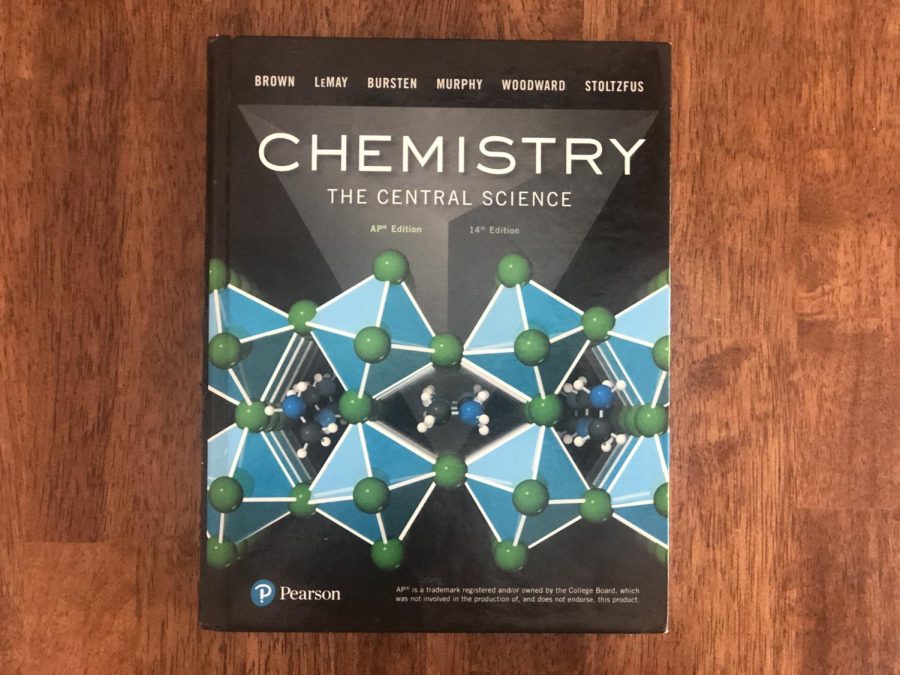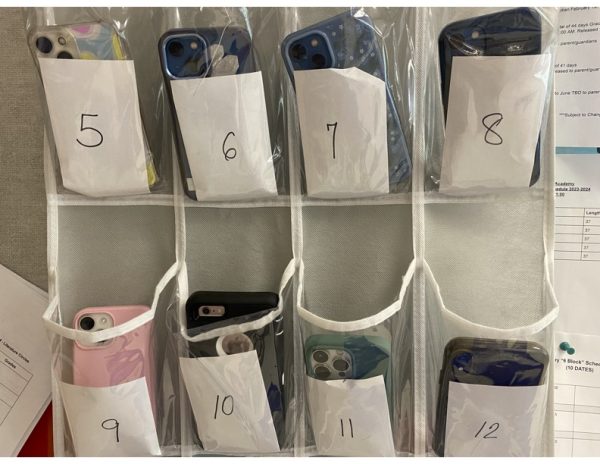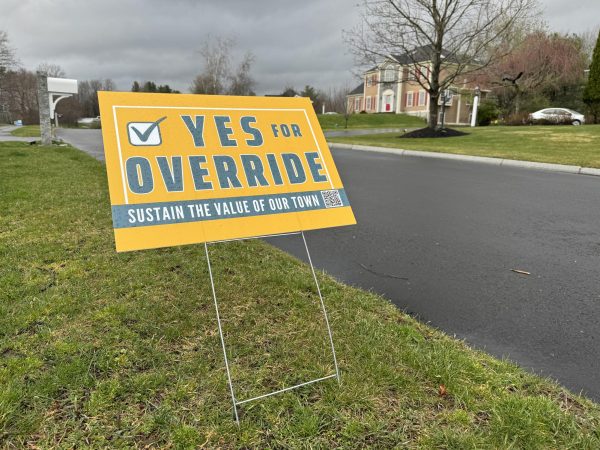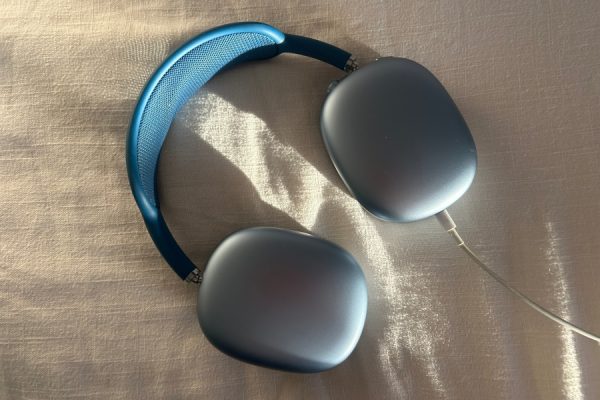Success should not be defined by APs
A copy of the AP Chemistry textbook.
March 13, 2023
We all know that Westford Academy is driven by its academics. Across all four core subjects, as well as electives, students keep their schoolwork in the forefront of their minds. While this foundation for success breeds strong students, it also procures an unhealthy mindset across WA.
Advanced Placement [AP] classes at WA are considered the most academically rigorous class a high school student can take. APs are offered as early as sophomore year, when AP Statistics becomes available to take as a class. While there is only one AP that can be taken as a sophomore, as students progress onto their junior and senior years, a great deal of APs become available. With these APs come great opportunities to develop skills and pursue interests, but taking too many can prove to be harmful.
Across the junior and senior classes, numerous students take APs, and many of them take several at a time. Overloading schedules with APs is dangerous to students’ mental health, as they are meant for students who are passionate about a given subject. AP classes do not exist so students can take them whenever possible. The issue of students overloading themselves with APs is only worsening over time at WA, and was clearly relevant during the recent scheduling process.
With students buzzing about what classes they were planning to take for next year, the most common question I heard was, “Should I take this AP even though my schedule is already difficult?” The answer should be no, but for students across WA, the answer, more often than not, is yes.
The reasoning behind this matter is that students are judging their academic integrity on the number of APs they take, which is an unhealthy outlook on the high school experience. Academics is about improving as a student over the course of one’s scholastic careers, and high schoolers do not need to take an AP to prove that they have made this progression. Students should take APs if the given course is a genuine interest of theirs, rather than taking it just to see the letters “AP” on their schedule.
The common theme of students taking as many APs as possible can be detrimental in a variety of ways to individuals, and adds more fuel to the fire of the academic culture at WA. On a weekly basis, an AP class assigns four to five hours of homework according to the WA Student Handbook, equating to up to an hour of homework every night for a single class. Therefore, students who take many APs must complete hours of homework nightly, alongside any extracurricular activities or family responsibilities they have. There are only so many hours in a day, so with a schedule as busy as what students are making them out to be at WA, great deals of stress, as well as minimal sleep, will ensue, resulting in a decrease of mental health.
Additionally, this year’s scheduling process showed me how students are adding APs to their schedule as if it is a competition amongst their peers of who can take the most AP classes instead of considering if taking a given AP is truly beneficial. This produces a toxic culture at times. Challenging oneself academically comes in many forms for different types of students, but this should not carry over to one-upping your peers in how many APs you take.
As a current junior myself, I faced this issue when filling out my own schedule, as I was tossing back and forth on whether or not I would take an AP course which would be my second for my senior year. Eventually, I came to the realization that I did not actually want to take the class, but it was rather the unhealthy stigma of taking APs that has developed around me at WA that was making me consider adding the course to my schedule in the first place. I still have a difficult schedule for my senior year where I am challenging myself to be the best student I can, but I am doing it without loading my schedule with too many APs, and am instead prioritizing my mental health.
I am not saying that APs are bad and that WA students should not take them. They have many benefits of their own, such as being a way in which students can challenge themselves, boost their GPA, and earn college credit if they pass the AP exam.
Additionally, having APs on your schedule is helpful in the college application process, as colleges, especially those that are highly selective, value these classes on resumes. For those applying to elite colleges, proving that you can maintain a heavy course load is understandable, but only to a certain extent. You should not take APs to the point where your high school experience is miserable just to bolster your resume.
If you are taking an AP, make sure it is something you are truly passionate about. High school should still be driven by academics, but that does not mean that you need to pack your schedule with APs. Instead, building a healthy and manageable schedule will prove to be academically advantageous in both the short and long term, while also allowing you to set aside more free time.
Here at WA, we have to change the mindset that if a class isn’t an AP class, then it is not a class worth taking, which has become the mentality of so many students. Even though CP and Honors classes do not give you college credit or help you skyrocket your GPA, they can still challenge you to be the best version of yourself, but in a less stressful environment. If this means slightly sacrificing your GPA for a less stressful six hours in school or a better night’s sleep, then do that by all means. Give yourself the chance to enjoy yourself during your time at WA, rather than sacrificing your own well-being just to take an extra one or two unnecessary AP classes.

















